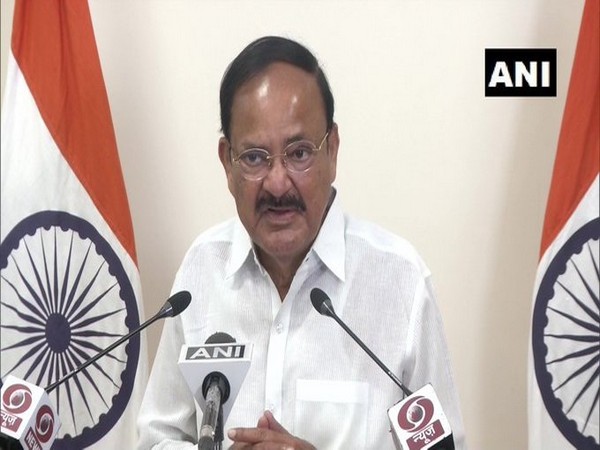Green buildings movement should become people's movement: Naidu
Noting that least half of the countrys population will live in towns and cities by 2050, the vice president said that this will create a lot of pressure on housing sector and green solutions will have to be developed to meet the emerging needs.Noting that roof cooling should be an area of priority for all, Naidu said in India, over 60 per cent of roofs are made from metal, asbestos, and concrete -- thus trapping heat inside buildings and contributing to heat island effect in urban areas.
PTI | New Delhi | Updated: 15-12-2020 15:09 IST | Created: 15-12-2020 15:02 IST
Vice President M Venkaiah Naidu on Tuesday appealed to finance commissions and local bodies to encourage green buildings through various measures including tax incentives. He also wanted all states to create online portals to provide single-window clearance to green buildings.
Virtually inaugurating the 12th GRIHA (Green Rating for Integrated Habitat Assessment Summit) from Hyderabad, the vice president said India has the potential to lead the global green building movement and emphasised the need to promote green building concept by both the private sector and the government. Recognising that there is a lack of awareness among people about the green building concept, he also called for the launch of a mass media campaign on the advantages of building green homes. ''Green buildings movement should become people's movement,'' the vice president said, according to an official statement.
Quoting World Green Building Council data, Naidu said buildings and construction account for 39 per cent of energy-related CO2 emissions in the world and called for accelerating the process of total de-carbonisation of the built environment. Noting that the 'Aatmanirbhar Bharat Abhiyaan' envisions making India self-reliant in all spheres, the vice president emphasised the need for sustainable development and wanted awareness to be increased among the people.
Calling buildings as one of the major contributors of greenhouse gas emissions, Naidu said there is a need for concerted and coordinated efforts from all stakeholders to ensure that the buildings are environment-friendly and energy and resource-efficient. ''The construction material we use today should be sustainable -- it should not in any way jeopardise the ability of future generations to meet their needs,'' he added.
He expressed happiness over several government and private bodies committing to build their future buildings greener. The vice president wanted every future building to go green mandatorily and said that this should apply to all kinds of building. Not only new buildings, the existing buildings too have to be retrofitted to make them environment-friendly, he felt.
Observing that ancient civilisational values teach us to live in harmony with nature, he called for revisiting traditional and nature-friendly house designs refined over thousands of years by ancestors. ''Unfortunately, our modern structures are such that no sparrow can come and make a nest in our house. This is not our culture,'' he pointed out. Warning that climate change is real and impacting people, Naidu called for a balance between economic development and environmental protection. Economy and ecology can coexist if one respects nature, he said.
He said that the current year has been a tumultuous one due to the COVID-19 pandemic and a number of natural calamities in the form of floods, droughts and other extreme weather events. Thus, there is an absolute need to ''reorient our approach to development as the decisions we make today will have repercussions far beyond our own lifetimes'', he warned. Noting that least half of the country's population will live in towns and cities by 2050, the vice president said that this will create a lot of pressure on housing sector and green solutions will have to be developed to meet the emerging needs.
Noting that roof cooling should be an area of priority for all, Naidu said in India, over 60 per cent of roofs are made from metal, asbestos, and concrete -- thus trapping heat inside buildings and contributing to heat island effect in urban areas. Observing that cool roofs offer a simple and cost-effective solution that can lower indoor temperatures by 2 to 4 degrees Celsius as compared to traditional roofs, the vice president said that these can be very effective for low-income households and slums in urban areas. Stating that need for air conditioners is expected to rise substantially with improvement in living standards and rise in temperatures due to global warming, he said that cool roofs can reduce the heat stress in homes and offices and bring down the dependence on air conditioners. Simple techniques such as lime-based paint, reflective coatings or membranes can reflect the sunlight and reduce heat absorption, he suggested.
Emphasising the need to utilise light and air that is naturally available, Naidu said that the COVID-19 pandemic has taught the importance of good air circulation in the buildings reducing the infection rate.
- READ MORE ON:
- M Venkaiah Naidu
- Naidu
